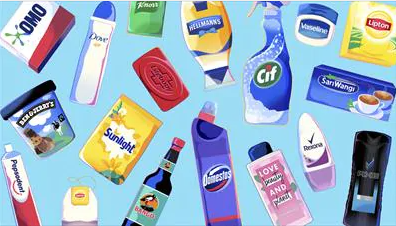Unilever brands to collectively invest €1billion in new dedicated Climate & Nature Fund
- June 26, 2020
- Posted by: Elaine Coles
- Category: Companies, Corporate, Environmental, Investment and Finance

Multinational consumer goods giant Unilever is set to invest €1 billion in a new dedicated Climate & Nature Fund.
Unilever has announced a new range of measures and commitments designed to improve the health of the planet by taking even more decisive action to fight climate change, and protect and regenerate nature, to preserve resources for future generations.
The global group is aiming to achieve Net Zero emissions from all its products by 2039 – to accelerate action, Unilever’s brands will collectively invest €1 billion in a new dedicated Climate & Nature Fund.
The funding will be used over the next ten years to take meaningful and decisive action, with projects likely to include landscape restoration, reforestation, carbon sequestration, wildlife protection and water preservation.
In addition, the company will seek to empower, and work with, a new generation of farmers and smallholders, driving programmes to protect and restore forests, soil and biodiversity. It also plans to work with governments and other organisations to improve access to water for communities in water-stressed areas.
Unilever to step up direct efforts to preserve water and implement water stewardship programmes
Unilever will also step up direct efforts to preserve water, including the implementation of water stewardship programmes for local communities in 100 locations by 2030. To do this, we will take the learnings from its Prabhat programme in India, which tackles water quality and supply risks around Unilever factories. The programme takes a community approach to water management, and not only helps farmers across cropping seasons, but also addresses the basic human need for adequate and easy access to water. Unilever said it will build a model for this water stewardship programme, and partner with key suppliers for them to also run similar programmes.
The company also plans to join the 2030 Water Resources Group, a multi-stakeholder platform hosted by the World Bank, to contribute to transformative change and building resilience in water management in key water-stressed markets, such as India, Brazil, South Africa, Vietnam and Indonesia.
To further protect water resources, it will aim to make its product formulations biodegradable by 2030, to minimise their impact on water and the aquatic ecosystems. The company said that although some of the ingredients it currently uses have no viable biodegradable alternatives, it will work with partners to drive innovation and find solutions to help reach its ambition.
Fighting the climate crisis
Unilver’s existing science-based targets are:
- to have no carbon emissions from its own operations
- to halve the GHG footprint of its products across the value chain, by 2030
In response to the scale and urgency of the climate crisis, the multi-national has now additionally committed to net zero emissions from all its products by 2039 – from the sourcing of the materials we use, up to the point of sale of its products in the store.
Unilever said in a statement:
“To achieve this goal 11 years ahead of the 2050 Paris Agreement deadline, we must work jointly with our partners across our value chain, to collectively drive lower levels of greenhouse gas emissions. We will, therefore, prioritise building partnerships with our suppliers who have set and committed to their own science-based targets.”
“We believe that transparency about carbon footprint will be an accelerator in the global race to zero emissions, and it is our ambition to communicate the carbon footprint of every product we sell.”
“To do this, we will set up a system for our suppliers to declare, on each invoice, the carbon footprint of the goods and services provided; and we will create partnerships with other businesses and organisations to standardise data collection, sharing and communication.”
Protecting and regenerating nature
Unilever has been following sustainable sourcing practices for over a decade – 89% of its forest-related commodities are certified as sustainably sourced to globally recognised standards. The company now plans to achieve a deforestation-free supply chain by 2023. To do this, it will increase traceability and transparency by using emerging digital technologies – such as satellite monitoring, geolocation tracking and blockchain – accelerating smallholder inclusion and changing its approach to derivates sourcing.
Unilever said it is also committed to working with the industry, NGOs and governments, to look beyond forests, peatlands and tropical rainforests, and to protect other important areas of high conservation value and high carbon stock which are under threat of conversion to arable land, with potentially devastating impact on the natural habitats.
Alan Jope, Unilever CEO, explained:
“While the world is dealing with the devastating effects of the Covid-19 pandemic, and grappling with serious issues of inequality, we can’t let ourselves forget that the climate crisis is still a threat to all of us. Climate change, nature degradation, biodiversity decline, water scarcity – all these issues are interconnected, and we must address them all simultaneously.
“In doing so, we must also recognise that the climate crisis is not only an environmental emergency; it also has a terrible impact on lives and livelihoods. We, therefore, have a responsibility to help tackle the crisis: as a business, and through direct action by our brands.”
